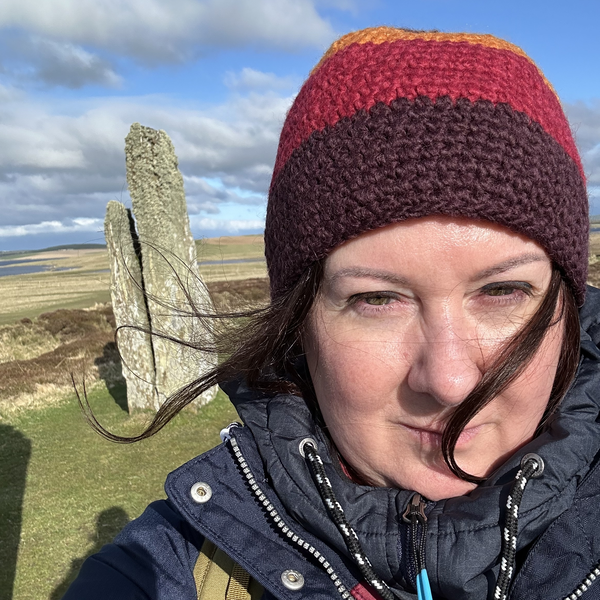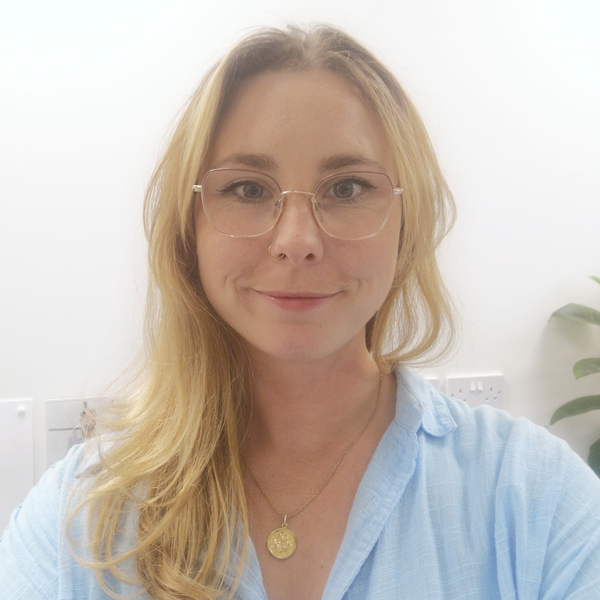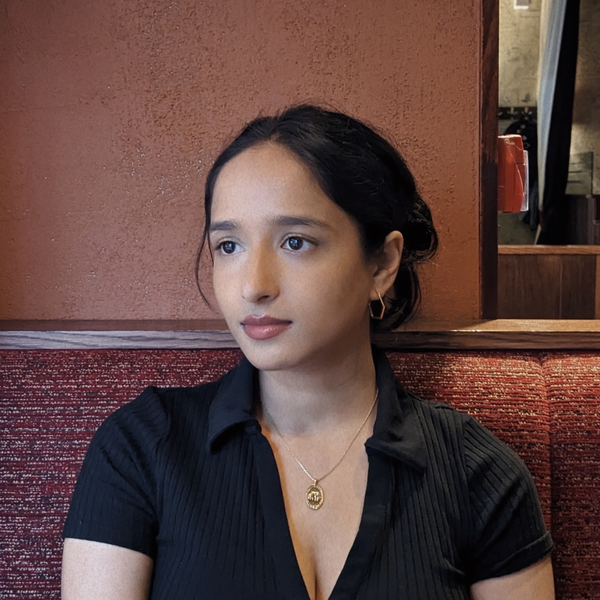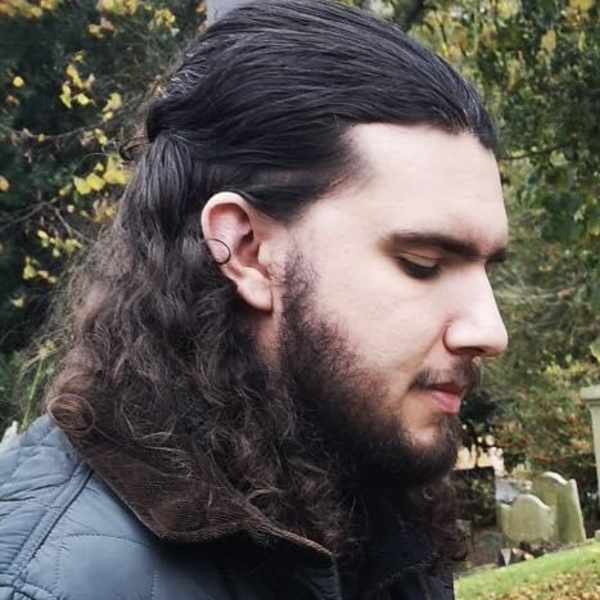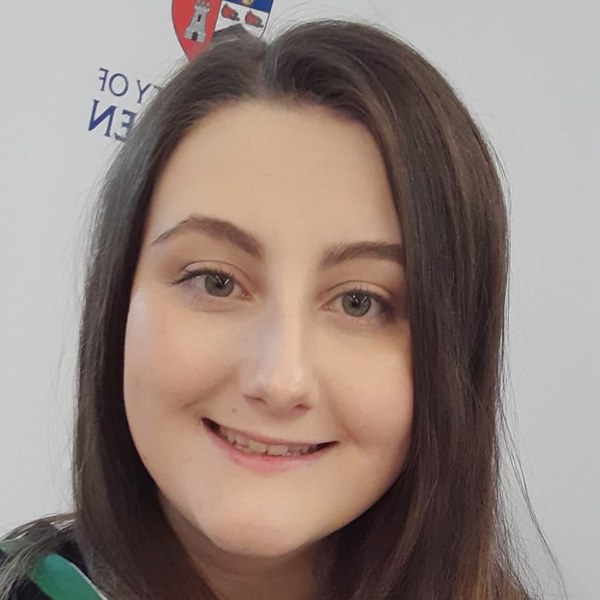
Introduction
This programme provides you with the knowledge and skills to enter the professional world of cultural heritage. Building on established archaeological expertise at the University of Aberdeen, you will learn about current policy and practice and apply your knowledge at heritage sites, working directly with heritage professionals and local communities.
Begin your studies in either January or September, and jump-start your career in cultural heritage management, professional archaeology, or education and research. Apply Today.
Eligible international students can save £8,000 off tuition fees with the Aberdeen Global Scholarship. Learn More.
Study Information
Study Options
- Learning Mode
- On Campus Learning
- Degree Qualification
- MSc
- Duration
- 12 months or 24 months
- Study Mode
- Full Time or Part Time
- Start Month
- January or September
- Location of Study
- Aberdeen

The MSc Cultural Heritage provides essential training in the practical and theoretical elements of cultural heritage. It is suitable for students from a wide range of academic backgrounds who wish to pursue opportunities in heritage agencies and organisations, professional research units, local authorities, museums or the education sectors.
During this one-year multi-disciplinary Masters programme you will study heritage in Scotland and further afield to understand the social, political and regulatory frameworks which cultural heritage professionals operate in.
With opportunities to undertake a community heritage project and the option for a work placement, you will learn to tackle real-world challenges, preparing you for a variety of careers in the culture and heritage sectors.
With three study pathways, you can choose optional courses based on your particular interests or career aspirations:
- Culture and Museums Pathway - for those who aim to work in the museum sector or cultural sector more broadly, being involved in collections management, heritage tourism, education, and policy. This includes everything from open air museums to large national history galleries and more
- Heritage Sector Pathway - for those who seek to join the heritage sector, working at heritage agencies or historical and archaeological sites, performing management tasks, assessment, and public outreach. It is also for those interested in further postgraduate research in archaeology and/or heritage studies
- Archaeological Heritage Pathway - for those who want to work or to pursue postgraduate research in archaeology. Research themes will focus on the archaeology of the circumpolar north or heritage science, relating to prehistoric themes or techniques for heritage preservation
Available Programmes of Study
- MSc
-
Cultural Heritage
Qualification Duration Learning Mode Study Mode Start Month LocationMSc 12 months or 24 months On Campus Learning Full Time or Part Time September Aberdeen MoreProgramme Fees
Fee information Fee category Cost UK Tuition Fees for 2025/26 Academic Year £10,000 Tuition Fees for 2026/27 Academic Year £10,000 Tuition Fees for 2025/26 Academic Year (University of Aberdeen Graduates *) £7,000 Tuition Fees for 2026/27 Academic Year (University of Aberdeen Graduates *) £7,000 EU / International students Tuition Fees for 2025/26 Academic Year £22,000 Tuition Fees for 2026/27 Academic Year £22,000 Tuition Fees for 2025/26 Academic Year (Self-funded Students *) £14,000 Tuition Fees for 2026/27 Academic Year (Self-funded Students *) £14,000 Semester 1
Compulsory Courses
- Getting Started at the University of Aberdeen (PD5006)
-
This course, which is prescribed for all taught postgraduate students, is studied entirely online, is studied entirely online, takes approximately 2-3 hours to complete and can be taken in one sitting, or spread across the first 4 weeks of term.
Topics include University orientation overview, equality & diversity, MySkills, health, safety and cyber security, and academic integrity.
Successful completion of this course will be recorded on your Transcript as ‘Achieved’.
- Managing the Past: Heritage Politics and Practice (AY5010)
-
30 Credit Points
This course introduces students to the basic tenets of cultural heritage management at national and international level. Through the interdisciplinary lens of heritage studies, you will learn about the different political, social and economic meanings of heritage. Specific focus is placed on archaeological heritage, how its significance and stewardship has changed over time, and what policies and practices inform its management today. You will also learn about key challenges facing the sector.
Optional Courses
In addition students will take further 30 credit points from the following courses:
- Decolonising Museums (AT5053)
-
30 Credit Points
Museums worldwide are grappling with the complex legacies of colonialism that have shaped collections, institutional practices, and museum relationships with their users. This course introduces students to current debates regarding how - and if - the museum can fully decolonise. It also gives them a grounding in the historical, social, and institutional contexts which have led to these debates, and introduces practice-based strategies to address one of the key challenges facing museums and heritage institutions today.
- Northern Worlds (AY5001)
-
30 Credit Points
In a series of research-led lectures and seminars, students investigate what characterises the Archaeology of the North from environmental, socio-cultural, and ideological aspects. We examine several inter-locking themes, from the first colonisations of the North tracing how these earlier populations established the cultural, ethnic and religious diversity that define later periods. Students will be introduced to the ecological characteristics of higher latitudes, and examine the diverse ways in which communities have made the Northern World their home. We also examine how human communities have responded to climate changes in the past, resilience and adaptation, technology, and spirituality amongst Northern peoples
- Theory and Method in Research (AY5002)
-
30 Credit Points
In this course students will follow the development of archaeological thought from its roots in the scientific revolution of the 17th century through to the post-modern thinkers and finally discovering where the current theoretical debates stand. Students will explore the links between the theoretical development of archaeological research and the general developments in the history of science and philosophy. Students also explore different methodologies central to archaeological research, discuss what constitute archaeological data, and how to design a research project. Students will also discuss research ethics, and scientific agendas. These issues are explored through a series of lectures and seminars.
Semester 2
Compulsory Courses
- Managing the Present: Heritage Communities and Representation (AY5510)
-
30 Credit Points
This course examines “who” is represented in current frameworks for cultural heritage management, and explores possibilities and problems linked to community engagement. You will learn about approaches and ethics when working with groups that have a stake in archaeological sites and narratives, from indigenous peoples to experts and politicians. Through a joint field project, you will gain direct experience in identifying and engaging Aberdeenshire communities in heritage interpretation.
Optional Courses
In addition students will take further 30 credit points from the following courses:
- Northern Peoples and Culture (AY5501)
-
30 Credit Points
In a series of text based student-led seminars we study past Northern Peoples and Cultures through key topical debates, characteristic for different cultural regions and time periods. In the seminars students examine a range of northern contexts, from prehistory to more recent times all over the Circumpolar North. Students encounter topics as versatile as animal domestication in Northern Eurasia, Scandinavian Vikings, and Colonial North America illustrating the diversity of life and thought in Northern communities. Each seminar will also explore how particular key issues have become central to the 'identity' of archaeological research in the respective areas
- Advanced Archaeological Approaches (AY5504)
-
30 Credit Points
As an advanced engagement with current trends and approaches in Northern Archaeology students examine current cutting edge debates associated with new theories and methodologies in archaeological research. Students will encounter the versatility of methodological and theoretical approaches in Northern research through four different themes central to the Archaeology of the North; Body and Death, Heritage and Memory, Social Space and Structures, Human and Environment. Each theme is explored through series of research led seminars and a practical, approaching the theme from different theoretical/methodological angels. The main assessment of the course is an Internal Masters Conference on these four themes.
- Arts Management and Content Creation (FS5535)
-
30 Credit Points
This course simulates the development of an arts project, from initial proposal to a formal funding pitch, covering essential components for project success. Through case studies, readings and site visits, students will explore the ways artists and arts managers develop projects and events and build content to connect with audiences. This learning and experience will enable students to apply theoretical insights and practical strategies to their own creative concepts.
- Cultural Property Issues: Law Art and Museums (LS55UU)
-
30 Credit Points
Taught by museum expert and law academics, this course will examine cultural property issues such as treasure trove, looting and repatriation, forgery, sacred and street art, the derogatory treatment of art, and the commercialisation of artworks. Objects from the University Museum and collections worldwide will be drawn on to illustrate aspects of the course. Museum practice and operational experience will also inform the discussions in class. Students will be encouraged to explore and develop their own ideas. Facilitating this, the course will include a programme of case studies and/or issue papers to be presented by students for class discussion.
Semester 3
Compulsory Courses
- Research Project in Cultural Heritage (AY5909)
-
60 Credit Points
The final research project in the MSc in Cultural Heritage offers the opportunity to delve deep into a heritage issue or case study that interests you. By conversing with relevant literature and analysing a unique source material, you will become proficient in collecting, evaluating and synthesizing knowledge, and produce your own slice of original research. The project can be completed as a regular dissertation or as an applied research project based on a work-placement.
MSc 12 months or 24 months On Campus Learning Full Time or Part Time January Aberdeen MoreProgramme Fees
Fee information Fee category Cost UK Tuition Fees for 2025/26 Academic Year £10,000 Tuition Fees for 2026/27 Academic Year £10,000 Tuition Fees for 2025/26 Academic Year (University of Aberdeen Graduates *) £7,000 Tuition Fees for 2026/27 Academic Year (University of Aberdeen Graduates *) £7,000 EU / International students Tuition Fees for 2025/26 Academic Year £22,000 Tuition Fees for 2026/27 Academic Year £22,000 Tuition Fees for 2025/26 Academic Year (Self-funded Students *) £14,000 Tuition Fees for 2026/27 Academic Year (Self-funded Students *) £14,000
We will endeavour to make all course options available. However, these may be subject to change - see our Student Terms and Conditions page. In exceptional circumstances there may be additional fees associated with specialist courses, for example field trips.
Fee Information
Scholarships
All eligible self-funded international Postgraduate Masters students starting in September 2025 will receive an £8,000 scholarship. Learn more about this Aberdeen Global Scholarship here.
To see our full range of scholarships, visit our Funding Database.
How You'll Study
Learning Methods
- Field Trips
- Field Work
- Lectures
- Research
- Seminars
Why Study Cultural Heritage?
- The University of Aberdeen is ideally placed for studying archaeology and heritage due to the vast number of archaeologically significant locations in Aberdeenshire, and the Highlands and Islands. Our location provides easy access to numerous ancient sites and institutions where students can undertake fieldwork (interviews, observation, site surveys and more)
- Study at an internationally renowned university for Archaeology. The University of Aberdeen is ranked 3rd in the UK for Anthropology and Archaeology (Guardian University Guide 2025) and in the Global Top 100 for Archaeology (QS World University Rankings by Subject 2024)
- Choose from three different pathways to tailor your postgraduate qualification to your area of interest. Previous students have successfully been employed in positions such as heritage consultants, museum engagement officers, research assistants, and field archaeologists. Some have also moved onto the international scene in heritage expert forums on preservation such as ICOMOS
- You will gain a solid understanding of the meanings and management of cultural heritage in the modern world, with added depth in archaeological heritage. You will learn the principles and practices that guide heritage selection and protection level and be trained in tasks that are directly applicable to professional roles in the heritage sector
- Our department enjoys close working relationships with a wide range of local, national and international actors in the growing heritage sector, giving our students valuable opportunities to gain real-world experience through field visits and work placements
- You will become well-versed in current and future challenges in the field, discussing issues with heritage professionals through workshops and excursions. There is a specific focus on identity politics and contested heritage. How does heritage figure into international politics? Why did the distant past become a factor in Brexit and in European debates on immigration? A second major focus is on community engagement. Who is represented by current frameworks for heritage management?
Entry Requirements
Qualifications
The information below is provided as a guide only and does not guarantee entry to the University of Aberdeen.
This is a broad-reaching course, exploring the multi-disciplinary nature of the heritage environment and community engagement and is suited to students from various backgrounds looking to pursue careers in the heritage sector.
Applications are open to students presenting a 2:2 UK Honours degree, or an Honours degree from a non-UK institution which is judged by the University to be of equivalent worth in Archaeology or a related discipline such as History, History of Art, English, Geography, Anthropology, Humanities, Social Sciences or Environmental Sciences.
Please enter your country or territory to view relevant entry requirements.
Aberdeen Global Scholarship
Eligible self-funded Postgraduate Taught (PGT) students will receive the Aberdeen Global Scholarship. Eligibility details and further information are available on our dedicated page.
Aberdeen Global ScholarshipEnglish Language Requirements
To study for a Postgraduate Taught degree at the University of Aberdeen it is essential that you can speak, understand, read, and write English fluently. The minimum requirements for this degree are as follows:
IELTS Academic:
OVERALL - 6.5 with: Listening - 5.5; Reading - 5.5; Speaking - 5.5; Writing - 6.0
TOEFL iBT:
OVERALL - 90 with: Listening - 17; Reading - 18; Speaking - 20; Writing - 21
PTE Academic:
OVERALL - 62 with: Listening - 59; Reading - 59; Speaking - 59; Writing - 59
Cambridge English B2 First, C1 Advanced, C2 Proficiency:
OVERALL - 176 with: Listening - 162; Reading - 162; Speaking - 162; Writing - 169
Read more about specific English Language requirements here.
Document Requirements
You will be required to supply the following documentation with your application as proof you meet the entry requirements of this degree programme. If you have not yet completed your current programme of study, then you can still apply and you can provide your Degree Certificate at a later date.
- CV
- an up-to-date CV/Resumé
- Degree Certificate
- a degree certificate showing your qualifications
- Degree Transcript
- a full transcript showing all the subjects you studied and the marks you have achieved in your degree(s) (original & official English translation)
- Personal Statement
- a detailed personal statement explaining your motivation for this particular programme
Careers
Upon completion of this programme you are equipped with both the theoretical and practical knowledge and skills needed by employers within the heritage sector, including museums, local authorities and government agencies, historic trusts, and other cultural and conservation bodies.
In addition to the core courses taught, you are able to tailor your studies to your particular interests or career aspirations by selecting one of our three study pathways.
Graduates have gone on to roles in curation, archaeology and heritage consultation, teaching, tourism management, and research. This programme also prepares you for further study at the PhD level
Career Opportunities
- Curator
- Field Archaeologist
- Heritage Manager.
- Museum Officer
- Project Archaeologist
- Public Engagement
- Researcher
- Tourism Officer
What our Alumni Say
Our Experts
- Programme Leader
- Dr Elisabeth Niklasson
Information About Staff Changes
You will be taught by a range of experts including professors, lecturers, teaching fellows and postgraduate tutors. However, these may be subject to change - see our Student Terms and Conditions page.
Get in Touch
Contact Details
- Address
-
Student Recruitment & Admissions
University of Aberdeen
University Office
Regent Walk
Aberdeen
AB24 3FX


